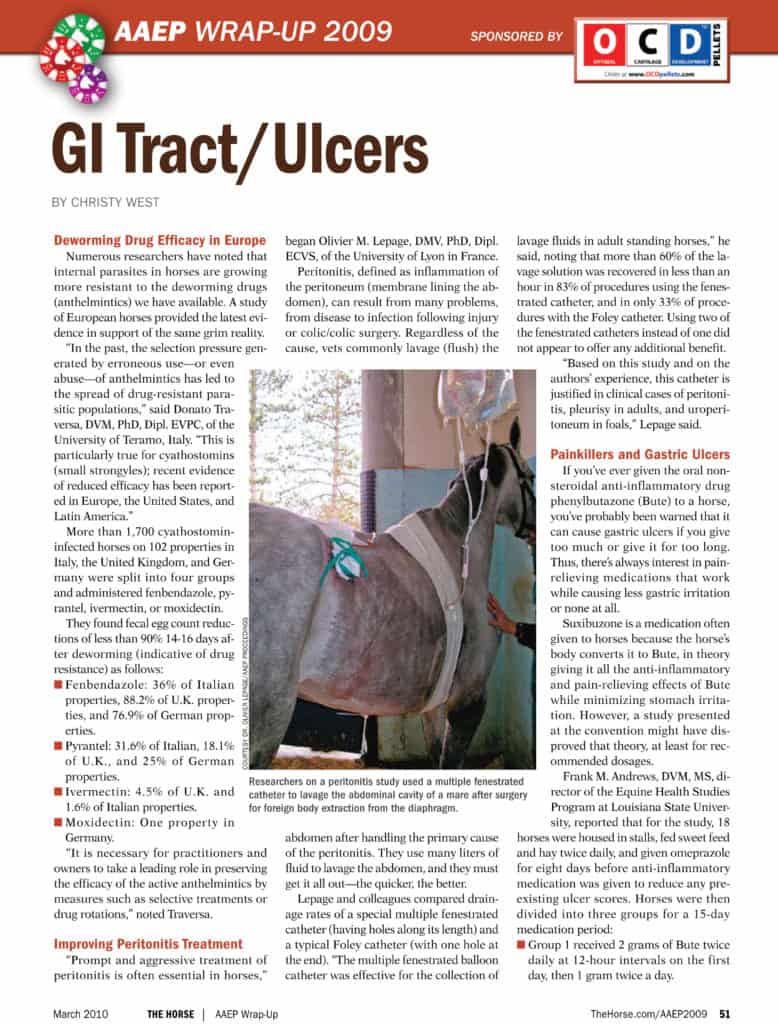Causal Relationship Between Cribbing and Colic Examined
Scientists have established the link between cribbing (also called windsucking) and colic, but a “causal” relationship between the two remains to be proven, say researchers from the University of California, Davis.




















